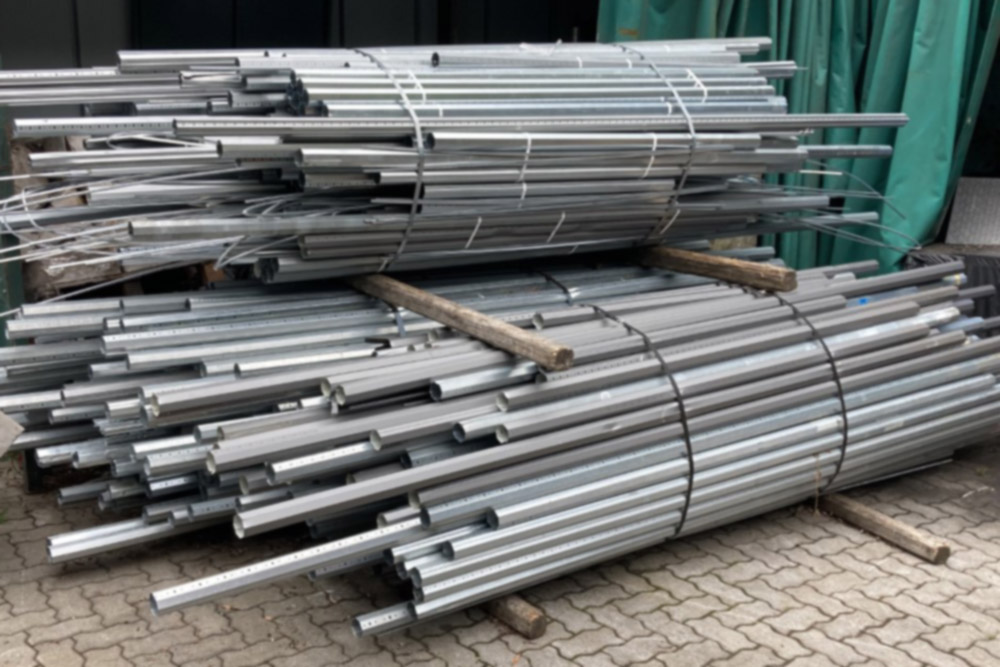Home | Digitalization | Inner dashboard crucial to success smart industry solutions
Inner dashboard crucial to success smart industry solutions
We were walking across the yard behind the factory when my eye caught a container. Or rather at a pile of scrap metal that lay over and around it. "What's that", I asked? "Oh", said my companion, foreman of the factory, "that's the scrap metal from the past week, caused by mistakes in setting up our machines". I looked at the pile and estimated the total at about 1000 kg of scrap steel and brass. What a waste, especially at a time when metal prices have increased by 50-100% from a year ago.

IN SHORT
This is the headline
The idea of a simple rule loop - feedback on one's own actions does a lot.
This is the headline
A solution can often be tremendously simple. Sometimes a simple solution may not be ideal in a factory setting but it works and prevents waste. In addition, it can be a solution that a factory worker understands immediately.
This is the headline
Often it is the simple examples of waste production, inefficiency or energy misuse that really get people thinking and talking.
Step by Step
We talked some more, about setting up machines, and how that works. Step by step we got to the point where the foreman started to see that small changes in the factory process can already prevent at least half of the material waste we saw here. The idea of a simple rule-loop - feedback on one's own actions does a lot. It's not impossible to check that bending wheels, drills or mills are properly aligned without wasting up to five products in a single production run.
While brainstorming, we came up with simple solutions - some of which were based on our sensor solutions, but some of which were as simple as using a wax crayon and a piece of paper instead of a drill to check drill positions on the product.
Imagine sticking a piece of paper on a metal plate. Place it under the drill, but set the drilling depth to 0.5 mm and place a wax crayon where the drill will be. Then compare the paper with the drill pattern in the product specification - and you can adjust the setting without wasting material.
"That last example is not very high-tech, not high-tech at all even by modern Western standards. Still, it's an important solution."
Being smart is not about automation
That last example is not very high tech, not high tech at all even by modern Western standards. Yet it is an important solution. First, because it is one of the simplest, if not the simplest, solution to a problem. It is not ideal in a factory setting, and somewhat cumbersome and error-prone, but it works and it prevents waste.
Secondly, it is a solution that a factory worker understands, and does not see as threatening to his job - or as a means to control him. This is important to us because we work with small factories where the level of automation is very low, and so a lot of the work is done by hand. Third, and most important, it is smart. Smart because it solves the problem of closing the control loop in a very effective way. Effective in two ways: it reduces waste, and it activates what I call the "inner dashboard."
The inner dashboard
When we talked to factory workers, managers and business owners over the past year, we usually talked about production processes, machines, sensors, data analytics and other rather technical things. But as in the example I started this article with, it was often the simple examples of waste production, inefficiency or energy misuse that really got people thinking and talking. Getting people to think by pointing out a pile of waste they take for granted, or a similar pile of work in progress for one machine caused by a local optimization in another machine. Thinking about their way of working, their processes, their factory layout. When that happens, you can almost see the numbers appear in their eyes, as they become aware of dependencies, effects of choices they make, and habits they have taken for granted. It's as if their inner dashboard is activated, and they suddenly begin to see the numbers.
Peace of mind
Once that happens, we as a technology integrator can suddenly give them peace of mind. By externalizing their internal dashboard, we can help them gain a better understanding of what they are doing. That's the point where our customers, the people who work in the plants we're modernizing, start to define what they want from us. In general, they start telling us what we should measure and what correlations might be interesting.
At that point, we begin to define what sensors are needed, where they should be placed, and what data should be collected. Bringing that together in a dashboard allows these people to see on a screen what they saw growing in their heads, and discuss and reason about it. It helps them close the control loop, and opens the door to the next step: getting more data from the shop floor and discovering the less obvious opportunities for improvement.
By enabling them to go through this process, automation and Smart Industry become a tool for them rather than a threat. Tapping into the inner dashboard of the people involved is crucial to the success of any smart industry solution. It is all too easy for us in the technology solutions domain to indulge in our smart solutions, but we need to make them owners of the solution, by externalizing their internal dashboard.
Previously published (in English) in Bits&Chips newsletter of September 23, 2021
TIPS
This is the headline
When we talked to factory workers, managers and business owners over the past year, we usually talked about production processes, machines, sensors, data analytics and other rather technical things. But as in the example, it was often the simple examples of waste production, inefficiency or energy misuse that really got people thinking and talking.
This is the headline
Tapping into the inner dashboard of the people involved is crucial to the success of any smart industry solution. It is all too easy for us in the technology solutions domain to indulge in our smart solutions, but we need to make them owners of the solution, by externalizing their internal dashboard.

shinchoku
Shinchoku, which is Japanese for "progress," is a company specializing in Smart Industry and Sustainability. Shinchoku's operations started in 2020 as a spin-off of Delphino Consultancy.